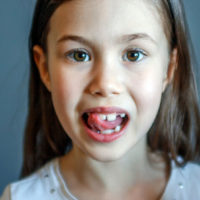Tourette Syndrome (TS)
-

Tourette Syndrome
Tourette Syndrome (TS) is a neurological condition that is estimated to affect one school child in every hundred. As with other neurological conditions, TS is more prevalent in boys, estimated that there is a prevalence of 0.7%. The main symptoms are physical and vocal tics, which typically develop in childhood.
Read more -

Barriers to improving access to therapy treatment for tics in the UK
The European clinical guidelines for Tourette Syndrome suggest that behavioural therapies (BT) are ‘first line treatments for tics for both children and adults’. However, according to Dr Tara Murphy and Dr Seonaid Anderson and colleagues, a barrier to delivering this in the UK is a lack of access to specialised psychologists and therapists.
Read more -

Access to evidence-based behavioural interventions needs improving for children affected by Tics
In 2016, Chris Hollis and colleagues compiled a Practitioner Review for the Journal of Child Psychology and Psychiatry evaluating the most effective and well-supported interventions for children and young people affected by Tourette syndrome and chronic tic disorder. Here, they discuss the key findings from their systematic review, and highlight that children and young people affected by tics require improved access to evidence-based behavioural interventions.
Read more -

Sensory-action binding: a new facet of Gilles de la Tourette Syndrome?
Gilles de la Tourette syndrome (GTS) is a neuropsychiatric disorder characterised by a persistent motor or vocal tic present for >1 year.
Read more -

Can physical exercise improve tics and associated mental health difficulties in Tourette syndrome? The jury is out
Physical exercise is increasingly being recommended as part of management for children and young people with mental health problems. There is a growing evidence base that shows physical exercise is associated with improvements in functioning for conditions such as attention deficit hyperactivity disorder (ADHD), although studies are small, they are signifcant.
Read more -

Challenging perspectives on Gilles de la Tourette Syndrome – evidence for a disorder of purposeful actions
Gilles de la Tourette Syndrome (GTS) is a multi-faceted neuropsychiatric developmental disorder with onset in childhood or adolescence. It is characterised by multiple motor and vocal tics that can cause considerable problems including social stigmatisation, low self-esteem and secondary comorbidity, particularly depression.
Read more -

Teaching about Tics
A psychoeducational intervention, in the form of a classroom presentation, can enhance the knowledge and attitudes of peers towards their classmates with Tourette syndrome (TS), according to research by Claire Nussey and colleagues.
Read more